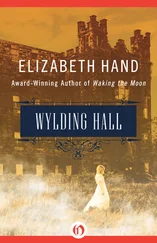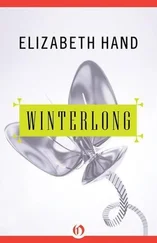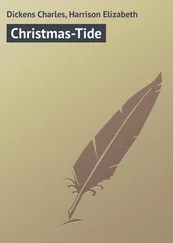Elizabeth Hand - Æstival Tide
Здесь есть возможность читать онлайн «Elizabeth Hand - Æstival Tide» весь текст электронной книги совершенно бесплатно (целиком полную версию без сокращений). В некоторых случаях можно слушать аудио, скачать через торрент в формате fb2 и присутствует краткое содержание. Жанр: Фантастика и фэнтези, на английском языке. Описание произведения, (предисловие) а так же отзывы посетителей доступны на портале библиотеки ЛибКат.
- Название:Æstival Tide
- Автор:
- Жанр:
- Год:неизвестен
- ISBN:нет данных
- Рейтинг книги:3 / 5. Голосов: 1
-
Избранное:Добавить в избранное
- Отзывы:
-
Ваша оценка:
- 60
- 1
- 2
- 3
- 4
- 5
Æstival Tide: краткое содержание, описание и аннотация
Предлагаем к чтению аннотацию, описание, краткое содержание или предисловие (зависит от того, что написал сам автор книги «Æstival Tide»). Если вы не нашли необходимую информацию о книге — напишите в комментариях, мы постараемся отыскать её.
Philip K Dick Award (nominee)
Æstival Tide — читать онлайн бесплатно полную книгу (весь текст) целиком
Ниже представлен текст книги, разбитый по страницам. Система сохранения места последней прочитанной страницы, позволяет с удобством читать онлайн бесплатно книгу «Æstival Tide», без необходимости каждый раз заново искать на чём Вы остановились. Поставьте закладку, и сможете в любой момент перейти на страницу, на которой закончили чтение.
Интервал:
Закладка:
Only the smell of the sea remained the same; and Reive shuddered, imagining it somewhere just out of sight, lapping against the gravator entrance or smashing through the bulwarks surrounding the refineries.
“This must be what timoring feels like,” she murmured. “If you do it right. Or what it’s really like, Outside…”
In the shadows they could glimpse other visitors, silent and subdued as Reive and Ceryl themselves, gazing at the eerie menagerie, the black trees shot with gold and violet where the faint light from the domes trickled through their branches. Once Reive stumbled, flailing as she grabbed at Ceryl’s hand—
“What—!”
The gynander’s eyes widened and Ceryl steadied herself against a tree. They could hear other voices crying out, and croaks and screams from the imprisoned animals, then ripples of nervous laughter.
Reive caught her breath, then said, “The ground! Did you feel it—it shook, it all shook —”
Ceryl bit her lip, waited until her breathing slowed. “It was the gravators,” she said at last. “Bringing all these cages up here—they’re so heavy—”
Reive stared at her as though she were mad. “The gravators? No, it is the Wind Outside—”
Ceryl grabbed the gynander and covered her mouth with her hand. “Stop it!” she hissed. “Do you want to cause a panic? Get us killed? ”
Reive glared at her, pulling at Ceryl’s hand. “We felt it! The storm, what Zalophus warned us of—”
“Reive,” pleaded Ceryl. She tipped her head to indicate where several members of the Toxins Cabal were talking animatedly and glancing at them. “Please—at least until we get back home this evening—”
Reive gave her a sulky look, but then she nodded. Ceryl took her hand and they walked more quickly toward the palace.
They stopped in front of a betulamia, a sentient tree whose slender branches plied the air gently, as though underwater. At its base squatted a square metal tub of mauve Catherine Wheel poppies. When Reive touched one, its gold-tipped petals contracted, then spat out a number of tiny bright red seeds that crackled and fizzed as they flew through the air. From within their cages gibbons howled and mandrills boomed, and somewhere out of sight one of the Children of Mercy shrieked with laughter as a dire wolf howled, a long anguished sound.
“Have they—have they brought them all here?” wondered Reive. She looked around, too embarrassed to admit what she was afraid of finding—Zalophus caged within one of those steel tanks, the Children of Mercy prodding him with their electrified lances.
“No,” Ceryl said. She plucked one of the spent poppy blossoms and gazed at it sadly. “Not everything—just some of them, who knows how they choose them—for the festival. I wasn’t up here for the last one, of course, but I’ve heard of things like this. It’s a—like one of the dioramas brought to life. For the Orsinate’s pleasure, and their guests. So they can pretend to cheat Death, and play at being Outside.”
Reive plucked a bit of tamarack and brushed her cheek with it, its bristles surprisingly soft and pungent. “Outside,” she whispered, and let the tamarack fall through her fingers to the ground. From behind them echoed a recording of the Compassionate Redeemer’s ululating cry.
“We’d better hurry,” Ceryl said without enthusiasm. As she walked, poppy seeds exploded beneath her feet, releasing their sulfurous smell. Reive followed, gazing wistfully behind them. The noise and scents from the menagerie faded as they approached the palace.
“What’s that?”
The gynander pointed to where a smear of white shimmered overhead, like a lantern reflected upon the convex surface of the domes.
Ceryl glanced up, then shrugged. “I don’t know. The moon?”
The moon. Reive tried to recall what the moon was: something to do with light. They were quite near the palace now, closer even than she had been at the Investiture. She smoothed her pantaloons, then rubbed her scalp anxiously. She wished she had brought some of her amber pomade when she’d left her own level. Ceryl’s clothes were so drab; but Reive had found a scarf of russet gossamer and tied it around her coiled hair, and dusted herself with silver ash until her skin had a dull gleam like pewter. Beside her Ceryl looked quite splendid. The jade-green tunic set off her pale skin, the brass-and-malachite fillet glinted from beneath her short glossy hair. Despite her fair hair and skin, her plebeian blue eyes, Ceryl was striking-looking. Reive could even imagine that someone might think her beautiful—not the Orsinate, however, whose tastes ran more toward the deliberately bizarre, even deformed. For a moment the gynander regretted not having worn more outlandish makeup, the better to impress the margravines; but now they had reached the very steps of the palace itself, and Ceryl was whispering nervously beside her.
“The sentries—”
Overhead several fougas circled lazily, their spotlights lancing the violet air with adamant. Glass bowls lit with rose-scented oil lined the entrance to the palace. The vicar of the Church of Christ Cadillac, resplendent in azure robes and chromium mitre, stood on the lowest step of the palace, a ritual urceole in her hands. As Reive and Ceryl passed she spattered them with seawater from the silver pitcher and murmured a ward against the world Outside. When Reive turned to stare at her she was jerked forward by Ceryl.
As they walked up the steps they were greeted by several guards in knee-length blousons of yolk-yellow linen, jade-green sashes across their breasts in honor of the festival. “Brave the Healing Wind,” one called out to Ceryl, and another smiled and winked at Reive. All the guards were human save the last, a forbidding scholiast with many-jointed arms and an eyeless face guarding the arch that led into the palace. Ceryl held up the Orsinate’s heraldic eye; the scholiast scanned it, then, “Ceryl Waxwing,” it whispered, and Ceryl passed through the high-arched doorway. Once on the other side she gazed back anxiously at Reive.
On the steps other guests paused to receive the vicar’s blessing. The fougas’ watchlights swept the boulevard. The gynander hesitated in front of the scholiast, then held out Tatsun Frizer’s card. The scholiast ignored it. Instead it took her hand and stretched out her palm, pricked it with a tiny needle that shot from its metal claw, humming as one of its optics scanned her face. A moment while it read her retinaprint and biogene.
“Reive Orsina,” it intoned, dropping her hand. She took one final look at the silent plaza and hurried inside.
Ceryl waited a few feet down the hall. She looked relieved as Reive ran up to her. “It didn’t question you?”
“No: it said our name, and then ‘Orsina’—”
“It must think you’re a special guest—which you are, I suppose. Well, we’ll see. It’s down this way….”
Inside, the palace was less imposing. The halls they hurried down were simple in appearance, almost utilitarian: faux marble floors and walls of a creamy white, with white arches and columns leading to this wing or another. Busts and holoimages of long-dead Orsinas gleamed or flickered in odd corners, but otherwise the hall was empty. Unseen scholiasts whispered the names of the different chambers—Toxins Cabal Salon, the Uropan Ambassador’s Suite, the Architect Imperator’s Drafting Room. As they passed this last door it opened, and a tall man and a dwarf emerged and followed them down the hall, whispering urgently. Ceryl’s hands went numb as she recognized Sajur Panggang, the Architect Imperator, and the puppeteer Rudyard Planck. Sajur walked slowly, his long legs slicing through the white hallways like well-oiled shears. Beside him Planck bounded like some macabre toy, brick-colored hair tossing, his tiny feet patting against the marble floor. Ceryl started walking faster, but behind her Reive paced oblivious, staring at the smooth arched ceiling and humming tunelessly to herself. When they reached the glass atrium with its garden of crystal orchids Ceryl hurried up the stairs, turning down this corridor and the next. Still Sajur and his grotesque companion followed them, until they all reached a dead end where a tall red-lacquered door stood open.
Читать дальшеИнтервал:
Закладка:
Похожие книги на «Æstival Tide»
Представляем Вашему вниманию похожие книги на «Æstival Tide» списком для выбора. Мы отобрали схожую по названию и смыслу литературу в надежде предоставить читателям больше вариантов отыскать новые, интересные, ещё непрочитанные произведения.
Обсуждение, отзывы о книге «Æstival Tide» и просто собственные мнения читателей. Оставьте ваши комментарии, напишите, что Вы думаете о произведении, его смысле или главных героях. Укажите что конкретно понравилось, а что нет, и почему Вы так считаете.












